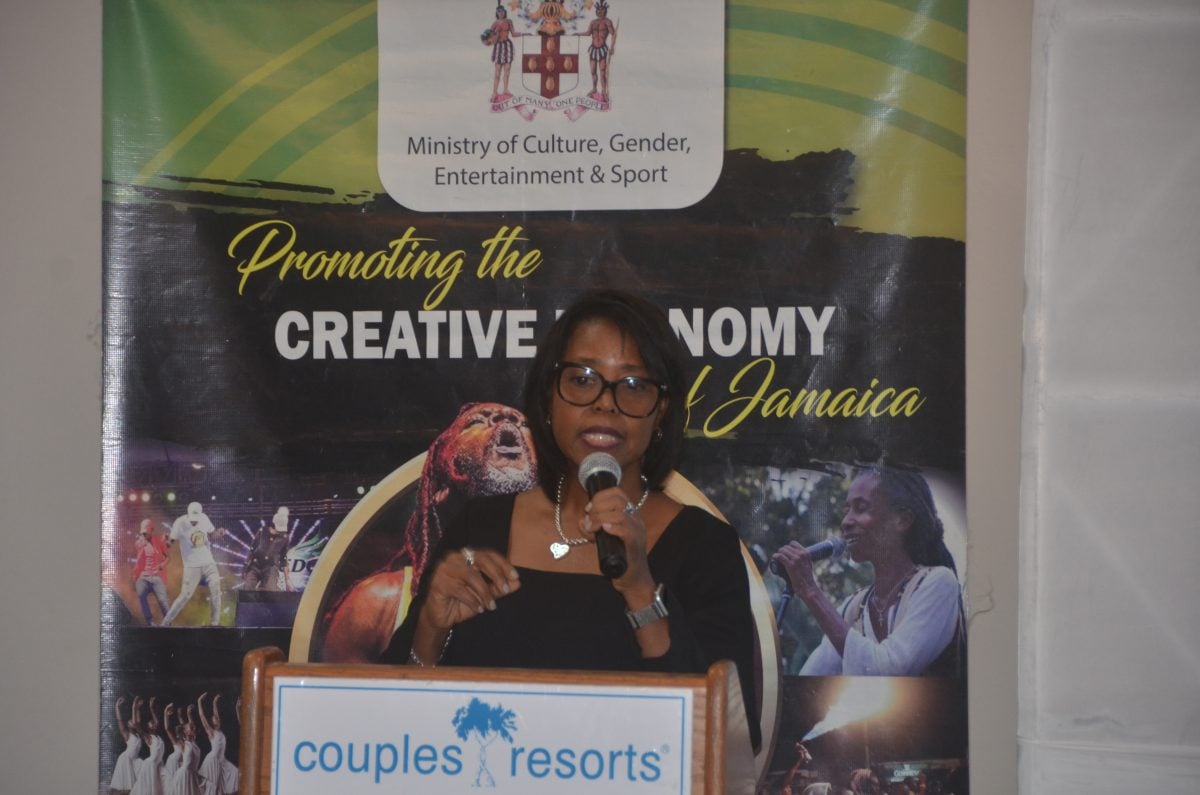JACAP Head Says There Are No Discrepancies In How Event Royalties Are Distributed To Artists

General Manager of the Jamaica Association of Composers Artistes and Publishers (JACAP) Lydia Rose is insisting that there are no discrepancies in how royalty fees collected from events are distributed to artists, even though there is no mandatory submission of playlists before or after functions are staged.
She was responding to questions about the issue first raised by veteran music selector Ricky Trooper, back in 2019, about the integrity of the process in which distributions of royalties were paid over to artists.
Trooper had said back then, that he could not fathom how the royalty payments were properly appropriated to artists, by Jamaican collection agencies JACAP and the Jamaica Music Society (JAMMS) when the organizations do not require that music playlists are submitted by the selectors before or after events are staged.
But Rose, who was speaking at the recently-held Negril Entertainment Conference, said that although her organization “requires” that music selectors submit playlists for songs used at parties, many refuse to do so.
“We do require playlists from the music selectors. Quite a few of the selectors, when we ask them, we do get the playlists … some selectors just say they not giving us. Quite a few of the events depending on the amount of capacity, we do physical audits. So not only do we ask selectors for playlists, we do physical audits,” she said.
“If it is that an event happens and we don’t have the physical playlist, we use a system called ‘analogy’ where we use what is played on the various radio stations to pay out. That is because a study has been done and it has shown that what is popular on radio, is what is played in the dance hall,” she added.
Added Rose: “We are now in the digital realm of YouTube etc. So what we also use is the charts or whatever digital thing we can get to also pay out if the show is not audited and if it is that we are unable to get the setlist from the DJs”.
Back in September 2019, Ricky Trooper had accused the two music collection and licensing agencies, JAMMS and JACAP of hoodwinking artists, and described the manner in which the royalty fees are collected as spurious.
“To me, wid the JAMMS and di JACAP ting, a big robbery. A big robbery a gwaan. Because JACAP a collect money and JAMMS a collect money and yo si dem money deh weh dem a collect, we who a play di artiste dem music we suppose to a mek playlist a di artiste dem songs dem weh wi a play a night, so das di artiste dem can know wha and wha wi a play, seen?” Trooper had said.
“Dem a collect money and dem money deh weh dem a collect, which artiste a get it? If me play 14 Bounty Killa and mi play 15 Sizzla, dem who a collect di money, how dem know say mi play dem artiste deh?” he had added.
Selectors, who play music from their laptops in places that are open to the public, are required to have a JACAP licence which allows the public use of music.
Under Jamaica’s Copyright Act, authors and owners of original musical works have certain exclusive rights over the use of their works, meaning that for any use of the work, permission or a ‘licence’ has to be sought from the copyright owner who is entitled to a royalty payment.
JACAP, which is a member-owned organisation, was established to collect licensing fees which are distributed as royalties to rights holders and the organisation’s affiliates globally.
As a consequence, users of music for any commercial or entertainment event, are required to have a JACAP licence, with failure resulting in injunctions, fines or imprisonment.
Under Jamaican law, anyone who copies, distributes, broadcasts or adapts musical works needs a licence. A licence is also required for public performances such as concerts, and in public places where music is played such as restaurants, bars, hotels and business places.
In addition, radio and television stations, including satellite and cable operators, must be licensed to broadcast into private homes and persons who use these services to provide entertainment for patrons, the general public or staff members, must have a licence to do so.
JAMMS, like JACAP, is also a non-governmental, non-profit organization.
It was established in 2006 under Jamaica’s Copyright Act, to administer the intellectual property rights granted to record producers, meaning owners of the master sound recordings.
JAMMS, in addition to collecting and distributing royalties, is mandated to manage the broadcasting and public performance rights of its members, through the granting of licences to music users such as radio and television broadcasters, webcasters, cable operators, clubs operators, restaurants, gyms, party organizers and show promoters.
The Kingston 6-based organisation also represents major international recording companies, among them SONYBMG, UNIVERSAL, WARNER MUSIC and EMI. JAMMS also has reciprocal agreements with foreign collecting societies in European countries such as Holland, Germany and France.
